.

Jeemy the moose, Scotland. This wee mouse was nearly tinker's tea. He was sitting a few inches below the cat and was frozen in fear!: photo by Louise Grant (Looby lou), 28 December 2006 (National Archives UK)
On Turning Her Up in Her Nest, with the Plough, November, 1785
Wee, sleeket, cowran, tim'rous beastie,
O, what a panic's in thy breastie!
Thou need na start awa sae hasty,
Wi' bickering brattle!
I wad be laith to rin an' chase thee,
Wi' murd'ring pattle!
I'm truly sorry Man's dominion
Has broken Nature's social union,
An' justifies that ill opinion
Which makes thee startle,
At me, thy poor, earth-born companion,
An' fellow-mortal!
I doubt na, whyles, but thou may thieve;
What then? poor beastie, thou maun live!
A daimen-icker in a thrave
'S a sma' request;
I'll get a blessin wi' the lave,
An' never miss't!
Thy wee-bit housie, too, in ruin!
It's silly wa's the win's are strewin!
An' naething, now, to big a new ane,
O' foggage green!
An' bleak December's wind's ensuin,
Baith snell an' keen!
Thou saw the fields laid bare an' wast,
An' weary Winter comin fast,
An' cozie here, beneath the blast,
Thou thought to dwell,
Till crash! the cruel coulter past
Out thro' thy cell.
That wee-bit heap o' leaves and stibble,
Has cost thee monie a weary nibble!
Now thou's turn'd out, for a' thy trouble,
But house or hald,
To thole the Winter's sleety dribble,
An' cranreuch cauld!
But Mousie, thou art no thy-lane,
In proving foresight may be vain:
The best laid schemes o' Mice an' Men
Gang aft agley,
An' lea'e us nought but grief an' pain,
For promis'd joy!
Still, thou art blest, compar'd wi' me!
The present only toucheth thee:
But Och! I backward cast my e'e,
On prospects drear!
An' forward, tho' I canna see,
I guess an' fear!
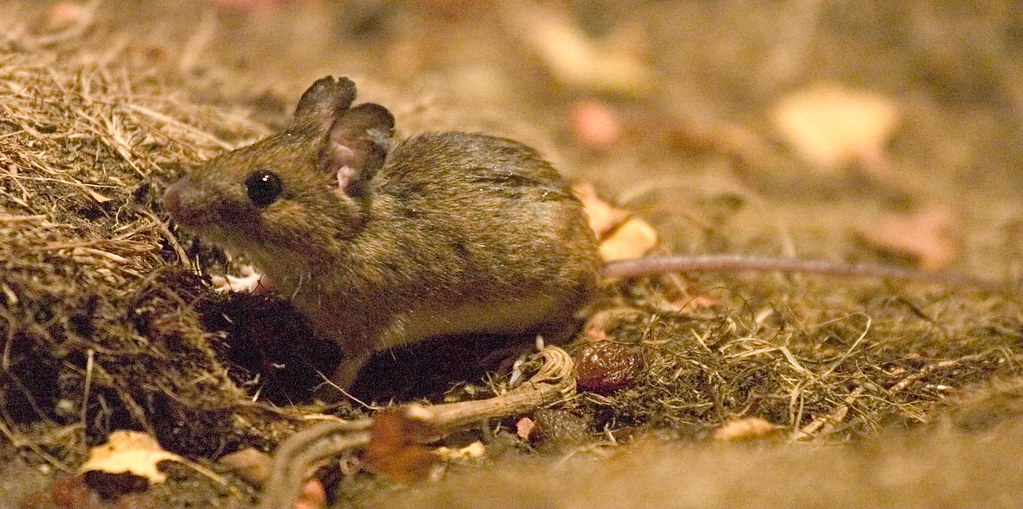
Opportunist mouse, in between pine martens, Highlands, Scotland: photo by Matt (vlad259), November 2004 (National Archives UK)
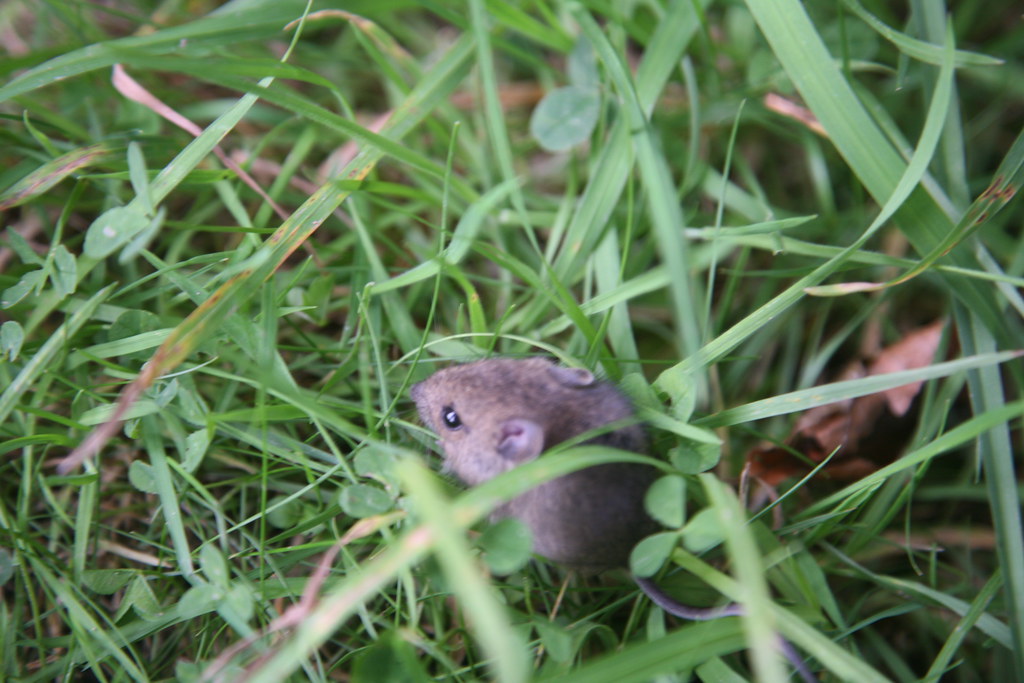
Mouse, Grampian, Scotland: photo by rethought, 14 September 2008 (National Archives UK)
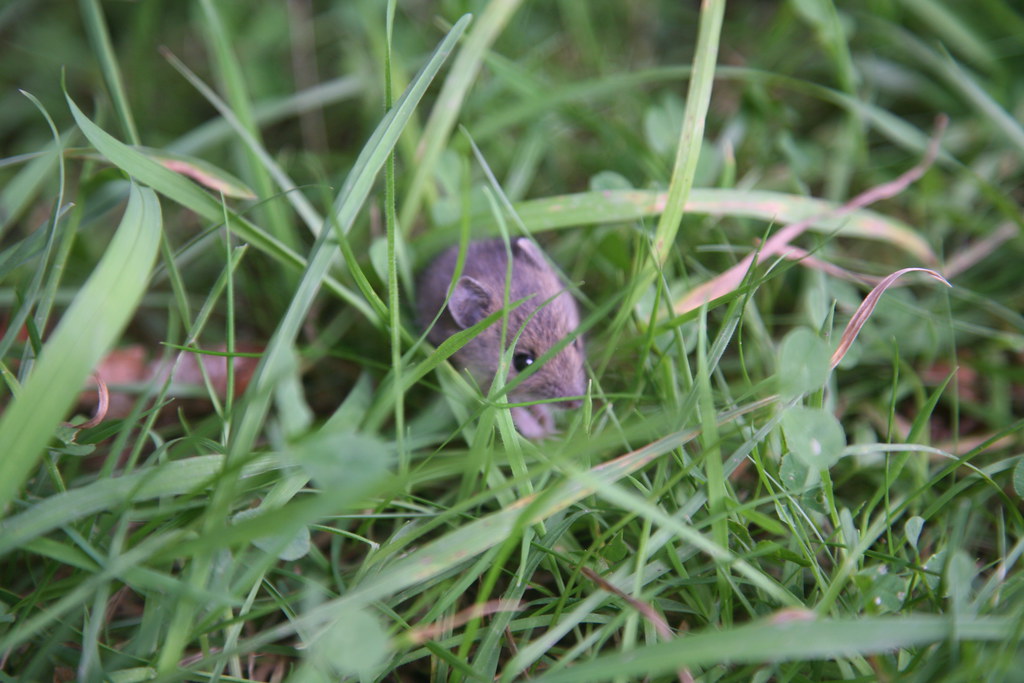
Mouse, Grampian, Scotland: photo by rethought, 14 September 2008 (National Archives UK)
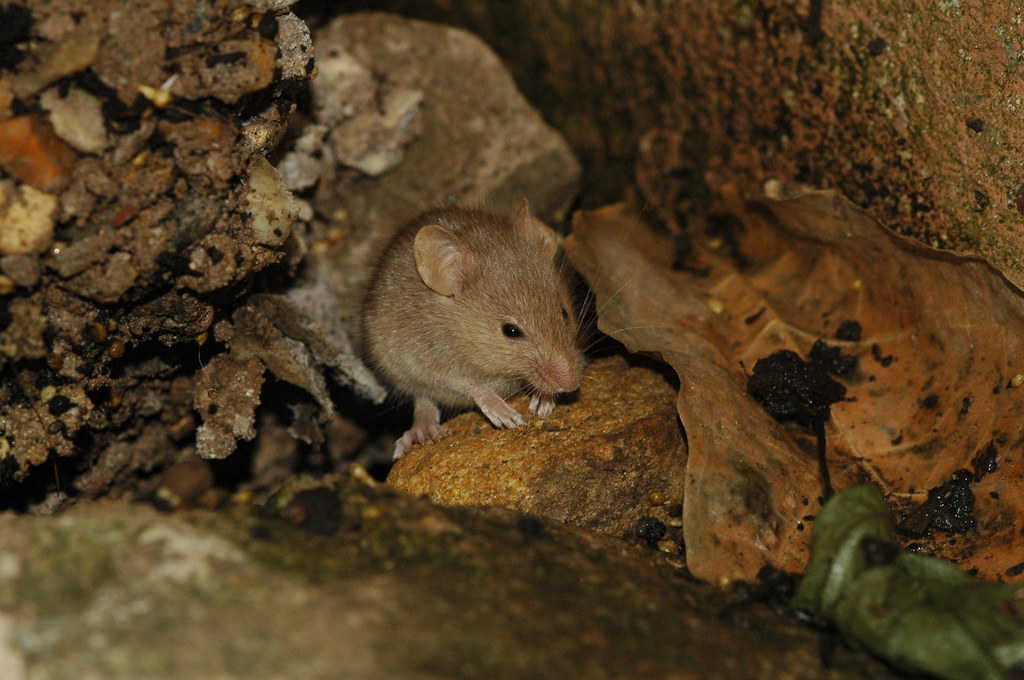
A wee moose (that's mouse in Scottish): photo by Gordon Brown (drunken lemur), 30 May 2006 (National Archives UK)
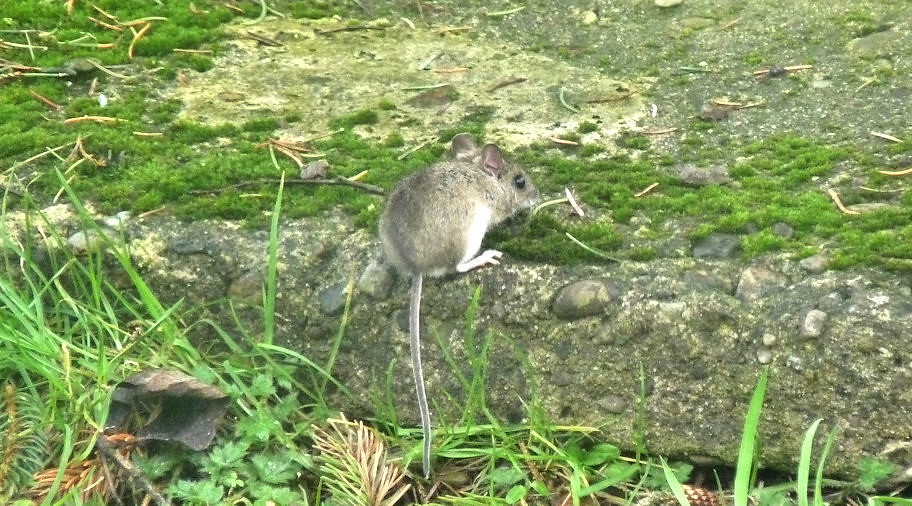
Mouse, Scotland: photo by Gordon M. Robertson, 11 February 2011 (National Archives UK)
Robert Burns: Poems, Chiefly in the Scottish Dialect, printed by John Wilson, Kilmarnock, 1786 (title page): image by Future Museum Project, 2005

Robert Burns (1759-1798): Alexander Nasymyth, 1787 (National Galleries, Scotland)




13 comments:
Appreciation of this very great poem is aided more than a wee bit by hearing it read in the native Scots dialect in which it was writ. There are several versions to be found. The best, I think, is this one:
Robert Burns: To a Mouse, read by David Sibbald
A useful excursus from George Wilkie: Understanding Robert Burns (2002) (via Electric Scotland):
"The poet is doing his utmost to assure this terrified little creature that he has no intention of causing it any harm. bickerin’ brattle = scurry, run; laith = loath; pattle = a small spade for cleaning a plough.
"He then goes on to apologise to the mouse for the behaviour of mankind using beautiful prose which requires neither translation nor interpretation. Listen to what he is saying, and you will be well on your way to understand what made Burns such a greatly loved man. Note how he equates himself with the mouse in life’s great plan.
"Here he tells the mouse that he realizes its need to steal the odd ear of corn, and he does not really mind. He’ll get by with remainder and never miss it. daimen = occasional; icker = an ear of corn; thrave = twenty four sheaves; lave = remainder.
"Dismay at the enormity of the problems he has brought on the mouse causes him to reflect on what he has done -- destroyed her home at a time when it is impossible to rebuild. There is no grass to build a new home and the December winds are cold and sharp. Her preparations for winter are gone! Big = build; foggage = moss; baith = both.
"Where the mouse had thought that she was prepared for winter in her comfortable little nest in the ground, now she is faced with trying to survive in a most unfriendly climate, with little or no hope in sight. cosie = comfortable; coulter; = iron cutter in front of a ploughshare.
"It seems probable that here the poet is really comparing his own hard times with that of the mouse –- a life of harsh struggle, with little or no reward at the end. monie = many; thole = to endure; dribble = drizzle; cranreuch = hoar-frost; cauld = cold.
"How many times have people glibly trotted out, “The best laid schemes” without realising that they were quoting from Burns? The sadness, the despair, the insight contained within this verse are truly remarkable and deeply moving. no ‘thy-lane = not alone; gan aft agley = often go awry.
"This final verse reveals the absolute despondency that Burns was feeling at this stage in his life. Not at all what one might expect from a young man of twenty-six, supposedly so popular with the lassies, and with his whole life ahead of him, but nevertheless expressing sentiments with which many of us today can easily relate."
Thanks for posting this, Tom. I've always loved this poem, with its synthesis of the ridiculous and profound. And Burns's technical brilliance is a thrill to encounter.
"Nature's social union". Every creature's gone world there - the ploughman and the mouse.
"What men want to learn from nature is how to use it in order wholly to dominate and other men." Adorno and Horkheimer, Dialectic of Enlightenment
That Enlightenment turn we're all living with that wears all things down to a bare utility; it's time the mice got angry.
http://www.youtube.com/watch?v=rjKw8KZxUN0
Sad to say we invented the game
Duncan,
They may well have been angry -- as well as justifiably afraid -- for a long time already. Fine lot of good it's ever done them.
The bit from Dialectic of Enlightenment puts into perspective how unique it was for a man who was as close to the soil as Burns to show such remarkable compassion for the small creature whose existence is affected by the ways of men. Or perhaps it was that very closeness which permitted him to see so clearly.
"...to apologise to the mouse for the behaviour of mankind... Note how he equates himself with the mouse in life’s great plan.
"Dismay at the enormity of the problems he has brought on the mouse causes him to reflect on what he has done..."
At least the farmer had his farming as his justification.
The "behaviour of mankind" has (de)evolved somewhat since then.
Now it seems no such purpose needs to be served nor such "useful" ends achieved. The domination is casual, banal, and senseless, and the thoughtful reflection simply doesn't occur. As long, that is, as the mistreatment occurs under the permission of "the advancement of science".
To a mouse. This post has a special meaning to me this morning, Tom, thank you so much. Before opening the comments section I thought oh, I need to hear this poem from the mouth of a Scotsman or Scotswoman, I am very found of the Scottish accent, but I have to admit I had to go back to your thorough explanation and translation of the dialect. Just listening to the sound of it is music to my ears.
This morning I will go to work and I will have the best laid plans for my mice. They don't know about them yet. Whichever they are, they will have to agree with them. Comply and obey. No intention to hurt but still going to. Thinking about this every day. I like the poet's comparison of himself with the mouse. I like the word Mousie. A Mousie for whom only the present counts. No corn, no shelter, electrodes in the brain, the reality of the present imposed on it. The present only toucheth thee. I backward cast my e'e, on prospects drear. That's the reality of the poet. The best laid schemes, a panic in thy breastie, a panic in my breastie, the same panic.
:-)) great angry mouse video by the way!
It’s good to come home to such a one as this: Burns's poem, the comments, the vids . . .
"Fellow-mortals" we.
I've come across a wee one twice in my summer garden hiding under the squash leaves--almost squashed him accidentally the first time; now I keep my distance and hope the little critter watches out for the (in)human interloper who's taken over his turf. One thing's sure if he's careful: He'll get his share of veggies before summer's over.
Tom,
Yes, such a great and sweet poem, and this reading by David Sibbald brings what the eye sees right to the ear. The baby quails fleeing for their lives as the tractor cut its way through the grass in the field a few weeks ago, "O, what a panic's in thy breastie!"
6.25
grey whiteness of fog against invisible
ridge, bird slanting toward pine branch
in foreground, sound of wave in channel
“yesterday” no matter where,
“shaking all the time”
after all, defined in terms
of it, but as against
grey white fog against invisible ridge,
shadowed green pine on tip of sandspit
What with the significant feline population here we've had several grievous mouse casualties over the years -- some fatalities, but also, happily, a few tough and brave little get-over-the-battering, scurry-away survivors... thus much sympathy with Robby's wee moose.
Not to mention much respect for Burns the man and Burns the poet and in particular for this poem, worthy every bit of astute craftsman Terry's high esteem.
And forgot to say -- many thanks for swell comments from all assembled and respected friends.
I don't think I really liked this poem until I heard a recording of it in dialect. Then it was all over. I still play it at regular intervals. I like listening to great poems more than reading them.
Post a Comment